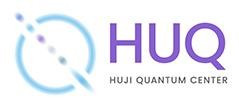
This unique interdisciplinary workshop brings together leading international experts, both theorists and experimentalists, on quantum dipolar gases, as well as young researchers and students from two communities: atomic physics and condensed-matter physics. The workshop will stimulate the exchange of ideas around this topic and thus create a framework for new collaborations in this interdisciplinary field of research. Initiating and motivating exchange of knowledge and ideas between the two communities to combine these complementary know-hows would hopefully lead to new and original research directions.
The school will cover the following topics:- Magnetic dipolar atomic gases
- Dipolar Rydberg atoms/polaritons
- Ultracold polar molecules
- Dipolar excitons (including Rydberg excitons)
- Dipolar Exciton-polaritons
- Dipolar Excitons in bilayers of 2D electron gases, graphene, and emerging 2D materials
The study of many-body quantum states of matter in cold dipolar systems is motivated by special features of the dipolar interaction – its long range and anisotropic character. The fundamental physics questions and technological promises of these special dipolar species go well-beyond the state-of-the-art of the weakly interacting atomic gases, with important consequences for many body systems as well as for applications in quantum information and quantum simulation.
The 3-day event will take place on October 23-25th, 2017, at the Israel Institute for Advanced Studies (IIAS), within the beautiful, green, and peaceful Edmond J. Safra campus of the Hebrew University which is located in the heart of the inspiring city of Jerusalem.
The intimate event will include comprehensive lectures from established experts to cover the state-of-the art in their corresponding fields, as well as presentations from the younger scientists, to allow them to expose their work to the relevant audience. Finally, the schedule will include sufficient time for informal discussions between participants. This will be facilitated by long discussion breaks between talks together with joint meals and evening slots for poster presentations and informal discussions.

